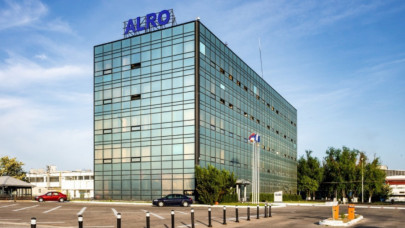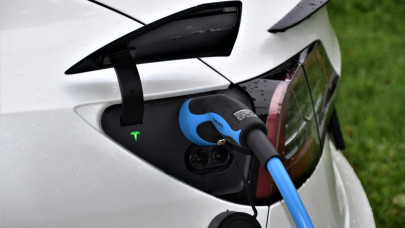The discussion explored the path of ESG investing and decarbonization strategies for the next twenty years. Participants emphasized the necessity of adhering to EU regulations within industries like real estate, underscoring the importance of simplifying approaches to compliance to drive engagement and results.
Hubert Abt FRICS, CEO, of New Work & workcloud24, said that when it comes to the real estate industry „we are left no chance but to work by the EU regulation, which is in place today, since, again, it's a law and to protect your business and your employees, you need to obey. There is no way out. We need to simplify the approach. And once you have the first results, you have more engagements because everybody sees the results. And with the increasing engagement”.
Transitioning from a focus on sustainability initiatives driven by idealism to more pragmatic modernism, speakers highlighted the shift towards implementing concrete projects and partnerships to advance ESG goals.
„We are now transiting further from the Romantic era, where we put in motion for sustainability so much to now, which I think is a bit of realism when we try to understand as much as possible, the reality without breaking or oversimplification. „And I'm very happy to move into the next era of ESG, which I think is modernism, where we do the processes and techniques, and we go into implementing projects inside the company and around us to pursue partnerships”, think Mihai Toader-Pasti, Founder & ESG Expert, towards 0.
A notable example discussed was the impact of deposit return schemes on fostering a circular economy, particularly exemplified by Romania's RetuRo system, which encourages the return of packaging to reduce littering and CO2 emissions while promoting recycling. The scheme's success was attributed to initiatives driven by private businesses, with governmental involvement complementing industry efforts.
”Because of this scheme we hope that they will bring the packaging back into the system, and the producer will have that chance to recycle this material and to use it again, to support the circular economy. The other thing is that it's not very visible to the public, which helps a lot in terms of reduction of CO2 emissions, because the packaging with recycled content flowers a lot of the emissions that appear in the production. So I think it's it's a huge success”, said Alina Cismas, Sustainable Development Manager, at Ursus Breweries.
”We support any initiative that ends up having a beneficial result like an effect in real life. We're not as affected in Romania, because we don't have the range of products that fall within the scope. But we've had multiple discussions at the European level, this is not a topic that is new to us. We've been discussing it for many, many years. Now, I remember I think 15 years ago, when I started working in public affairs one of my first projects was actually for ARAM, which is the Coalition for Environment and Packaging. We were discussing then about separate collection and recycling and deposit systems looking at Germany and seeing how it is possible to be done. And then, obviously, the reality was very different in Romania, but throughout the years with the progress that has been made, now we take a hard look around and see how it works”, added Irina Siminenco, Corporate Affairs Manager, Nestlé Romania.
Despite varying degrees of impact across sectors, such as Nestlé Romania's limited exposure to packaging regulations, there was consensus on the importance of supporting initiatives that yield tangible benefits. This sentiment was addressed by L'Oréal Group's emphasis on overcoming obstacles to decarbonization, requiring collaboration among governmental, private, and financial sectors.
„It's a tough one, both in Romania and South East Europe, in general. There are quite a few obstacles toward decarbonization because it involves the governmental sector, the public sector, and financial institutions. What I see as the biggest obstacle is infrastructure and some tech issues as well as financing. So it's quite a journey to agree among governmental private sector and finance institutions to see the next steps because, without government, there is not much of executive pushing”, said Ana Panajotovic, CSR and Sustainability Manager, L'Oréal Group.
The conversation also touched on incentivizing ESG practices, with suggestions ranging from raising awareness to celebrating achievements to drive social engagement and organizational commitment. Participants highlighted the critical role of leadership in driving ESG initiatives within companies, emphasizing the significance of governance metrics in fostering a culture of sustainability.
Examples of companies that thrived due to prioritizing ESG metrics were cited, showcasing the benefits of proactive strategies and innovation, particularly in traditionally sensitive industries like oil and gas. Such success stories underscored the importance of forward-thinking approaches and a willingness to innovate and diversify, even amidst challenges.
”We may need to raise awareness, we may need to engage them. And we may need as well to celebrate that. For me, ESG works together and separately as well”, said Renée Nicole Wagner, Corporate Director of ESG and Quality Management, Orascom Hotels Management AG.
”From my experience with lots of clients, I would say that the Governance metric is the most important from the ESG (Environment Social and Governance). The tone from the top is essential without hiring a decision, E and S will never have happened in the company or it will be other than some nice initiatives that one particular behavioral unit or employee has”, said Anamaria Stroia-Tilley, Sustainability Senior Manager, EY.














